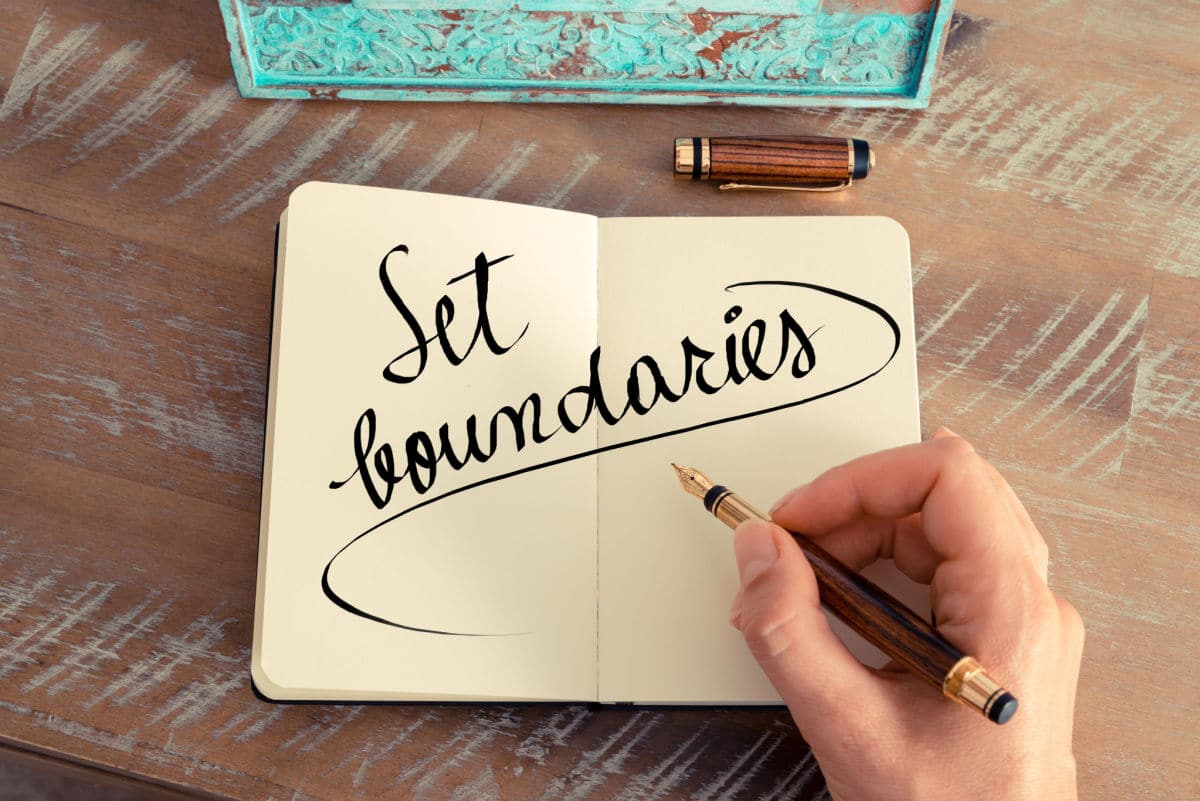
Maintaining a healthy relationship is already difficult without considering the impact of alcoholism and other mental health conditions. For someone struggling with addiction, it can impact children, family members, friends, and many more people. If you’re a spouse of someone with a substance use disorder, you need to set proper boundaries for yourself and the individual to avoid a worsening situation and protect your mental health. Here’s how to set limits while helping your partner recover from alcoholism.
Why Should I Set Boundaries?
Setting boundaries is important because it ensures you have time to care for yourself. Let’s face it, caring for a family member, whether big or small, means less time for yourself. While this is a sacrifice we agree to make when married or in a relationship, it doesn’t mean it cannot get taxing when dealing with alcoholism. The last thing you want to do is tax your mind so much that it becomes impossible for you to decipher the right path to help your partner follow.
Before Setting Your Boundaries, Keep These Tips in Mind
Setting boundaries isn’t as simple as saying, “get away from me” when you feel like it. It takes understanding your limits, how far you need to go to get the individual the help they need, and so many more thoughts and processes. Before setting boundaries, it’s important to remember a few of these tips before proceeding.
- Identify the limits you’re willing to go to
- Be direct and clear
- Start small
- Don’t be afraid to get support from others
- Make sure your personal time is allotted and respected
How to Set Boundaries With My Spouse
If you follow the steps, the first thing you’ll have outlined are the limits you’re willing to go. Drawing a hard line somewhere is one of the most difficult parts of the process while also being one of the most important. You can write them out or type them, but make sure you have some way of clarifying the boundaries before trying to enact them in the relationship. If you need help with the process, consider reaching out to any one of the following:
- Drug or alcohol counseling center
- Marriage counselor
- Family therapist
- Licensed social worker
- Licensed psychologist
Safety is one of the most important boundaries to set. Alcohol addicts can create dangerous environments if they start to threaten their spouses or children or become verbally abusive. They may also throw around chairs or tables or become physically violent in other ways.
Boundaries may also be financial. Addicts become so reliant on the substance that they waste money they need for shelter, bills, or food. You aren’t obligated or forced to give anyone money that they can’t control themselves, and spouses may use their position in marriage to force you to feel like you must support them. Set boundaries to avoid enabling the addict with monetary gifts.
No matter what you set, remember that what works for someone else might not work for you. Work to secure the proper boundaries you desire and how you plan on legislating them with your partner. It might seem like you’re hurting someone you love, but these rules are the first step to getting proper help for someone who cannot seem to release their grip on a bottle of alcohol.
Make Your Boundaries Worthwhile By Getting Your Partner the Help They Need
Boundaries can help alert your partner to poor habits and help reduce the stress and anxiety you might face due to your partner’s behavior, but they won’t cure any deep-rooted issues. There’s a difference between setting boundaries for someone you feel is drinking too much and someone who cannot stop drinking. If your partner has an alcohol dependence, don’t them battle alone. Make your boundaries worthwhile by getting the help they need from treatment facilities like Steps to Recovery.
If you’re looking for rehabilitation for alcoholism, our treatment center provides an outlet to help individuals who find it difficult to fight unhealthy consumption. We’ll ensure that boundaries are respected and that you or your partner gets the help they need with our quality recovery and treatment programs. Call Steps to Recovery today at 267.719.8528 if you or a loved one are dealing with a lack of boundaries due to alcoholism.
Sources:
https://psychcentral.com/blog/imperfect/2017/08/how-to-set-boundaries-with-an-alcoholic-or-addict
https://alcoholicsanonymous.com/living-with-an-addict/how-to-set-boundaries/
https://www.healthline.com/health/alcohol/married-to-an-alcoholic
Explore this article:
Explore Our Facilities
Drug and alcohol detox and residential treatment for addiction and mental health disorders
Outpatient treatment center for substance use disorder and mental health disorders
Outpatient treatment center for substance use disorder and co-occurring mental health disorders







